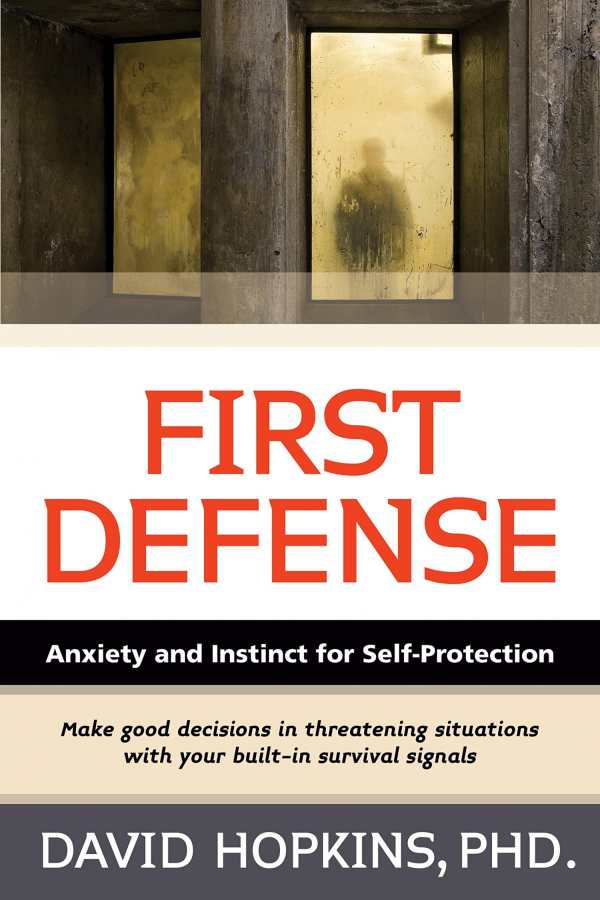It looks like you've stumbled upon a page meant to be read by our code instead of viewed directly. You're probably looking for this page.
First Defense
Anxiety and Instinct for Self Protection
This important work redefines the meaning of self-defense.
David Hopkins is a psychologist who has taught martial arts and worked as an investigator and bodyguard. His background is as unique and unusual as his book, First Defense. His key message is that “the process of using your instincts to harness the energy of anxiety through the will—and skillfully manipulate the enemy in a similar manner—is more than a technique. It is really a way of life.”
In a sound, thorough, and convincing manner, Hopkins explains the nature of anxiety and how to master it, the difference between fear and anxiety, how to depend on one’s instincts, and the importance of reacting nonphysically in a threatening situation. Based on his own experience, the author shares fascinating information about both nonphysical and physical reactions to information; he writes, for example, about noticing an enemy’s slightest movements before attacking. He also explores the fact that an opponent is just as concerned about staying alive, a factor which can be used to the victim’s psychological advantage.
While the author addresses the theoretical, he also offers sound advice for putting his recommended actions into practice. The simple exercises included in each chapter, accompanied by short worksheets that pose situations and questions, help crystallize the book’s content. In one exercise, for example, Hopkins encourages people to surreptitiously observe others in public, using instincts to sense the behavior of anyone who may be “potentially threatening.” This kind of sensitivity training that helps to create a higher self-awareness is what differentiates the book.
In addition to acting as a guide to modern day self-protection, First Defense contains sections on other contemporary issues. The discussion of PTSD, for example, is both authoritative and enlightened; Hopkins points out that soldiers need not have faced a direct life-threatening event to experience severe trauma, yet mental health workers will not diagnose PTSD unless such an event takes place. A chapter titled “Specific Issues Relating to Women and Children” sensitively addresses child abuse, threats from intimate partners, online threats to children, and how to train children to protect themselves.
Perhaps the most compelling quality of First Defense is the book’s focus on the psychological aspects of self-defense. Rather than concentrate on specific techniques of martial arts and hand-to-hand combat, which might be expected, the book concentrates on “learning to be present, to feel anxiety, and to think and act in different circumstances.” This is a refreshing approach that implies sound judgment is required before facing any adversity. First Defense sheds important new light on our understanding of, and attitude toward, self-protection.
Reviewed by
Barry Silverstein
Disclosure: This article is not an endorsement, but a review. The publisher of this book provided free copies of the book and paid a small fee to have their book reviewed by a professional reviewer. Foreword Reviews and Clarion Reviews make no guarantee that the publisher will receive a positive review. Foreword Magazine, Inc. is disclosing this in accordance with the Federal Trade Commission’s 16 CFR, Part 255.
